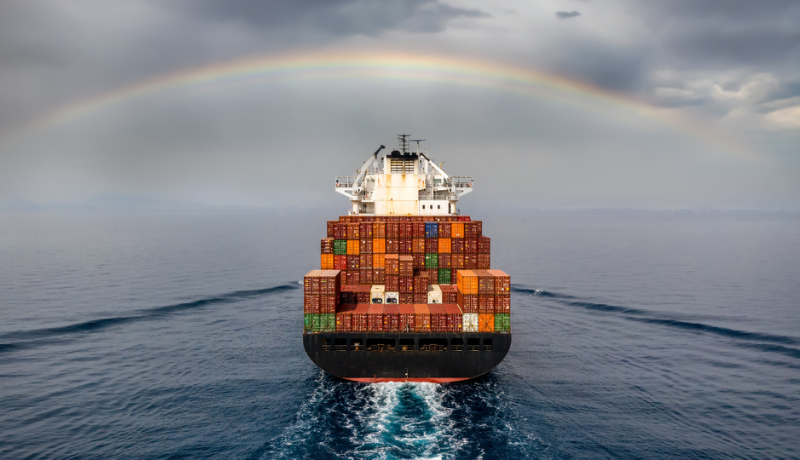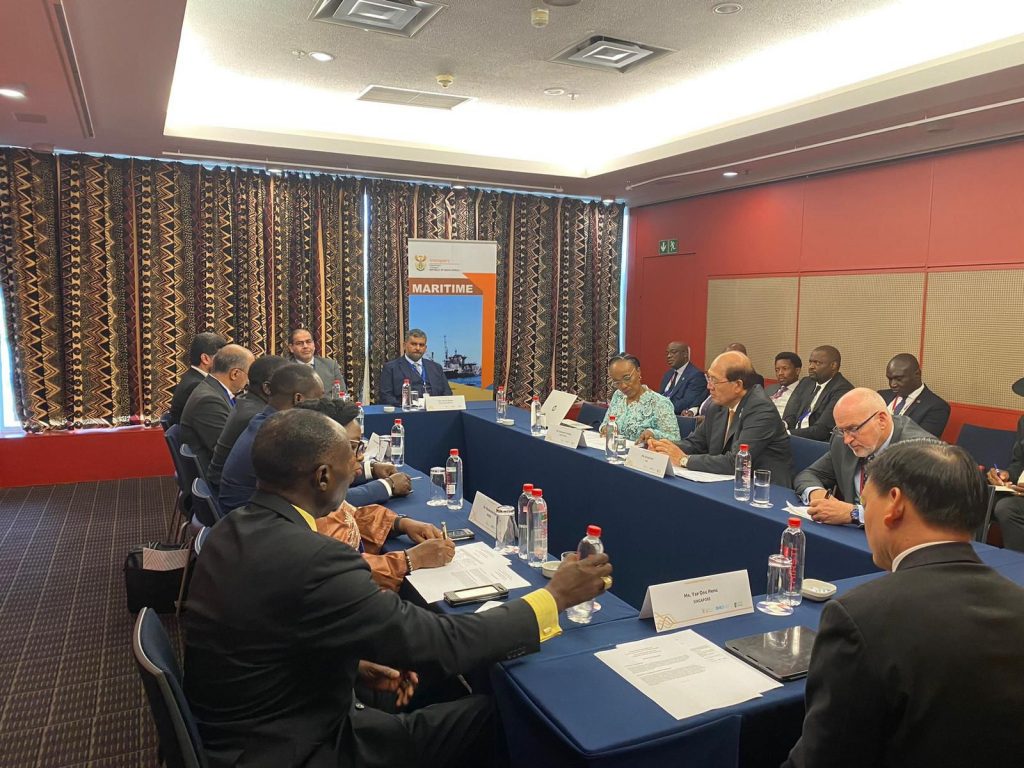
The UAE has always been one of the most influential countries in developing the maritime sector, ranking among the best maritime hubs in the world. With the presence of its permanent representative to the International Maritime Organization, H.E Mohamed Khamis AlKaabi, and Capt.Saif Al Mheiri, Managing Director of Abu Dhabi Maritime, an official delegate attended The World Maritime Day Parallel Event (WMDPE) hosted by the Government of South Africa in Durban under the theme of “New Technologies, Greener Shipping.” The delegation also participated in a high-level ministerial roundtable to discuss important issues such as international industry challenges and opportunities, capacity building, and the IMO Technical Cooperation Programme (ITCP).

In his opening speech, IMO Secretary-General Kitack Lim, highlighted: “After a two-year pause in parallel events due to the pandemic, we welcome all countries in Durban for the 2022 World Maritime Day Parallel Event. It was instituted to provide an opportunity to take the World Maritime theme “on the road” and it is undoubtedly one of the most important maritime events, worldwide.”
Secretary-General Lim, said: “Innovation is fundamental to the maritime industry’s successful energy transition. It requires new technologies, renewable alternative fuels and infrastructure to support low- and zero-carbon shipping, along with new financial solutions to support all those practical aspects.We also need innovative teams working together through effective R&D partnerships between private and government sectors.”
“We are here today to address capacity-building, technology and infrastructure to bring on board developing countries, in particular least developed countries (LDCs) and Small Island Developing States (SIDS) in the energy transition. Digitalization and automation can be counted amongst the technologies that will help us on the voyage towards cleaner, greener and more efficient shipping but this does not mean that we ignore the human element,” Secretary-General Lim added.

On the role of the UAE in developing the global maritime sector, H.E Mohamed Khamis Al Kaabi, Permanent Representative of the UAE to the International Maritime Organization, said: “The UAE is among the most influential countries in developing the maritime industry and has established its pioneering position among the leading maritime hubs globally. Through its membership in the IMO Council, the country plays a pivotal role in meeting regional and global maritime needs. We will continue to work with the other member states to advance the global maritime sector and enhance the role of the International Maritime Organization in supporting the safety, security and efficiency of maritime transport in clean oceans. The UAE has played an effective role in introducing fundamental amendments to many resolutions that contribute to developing and improving work systems to keep pace with global changes and latest technological developments, especially with regards to green shipping.”

Al Kaabi added, “The theme for this year’s World Maritime Day Parallel Event, “New technologies for greener shipping”, requires all countries to unite and take action on decarbonisation of shipping and ports through the use of zero or low carbon technologies, fuels and infrastructure. The shipping sector produces 2-3% of global CO2 emissions. Therefore, the IMO has set a target to cut the sector’s carbon emissions by at least 40% by 2030, pursuing efforts towards 70% by 2050 compared to 2008 levels and to reduce the total annual GHG emissions by at least 50% by 2050 compared to 2008, with the aim of phasing them out as soon as possible in this century. The technologies and infrastructure for new fuels must be ready for wide market uptake in shipping by 2030 for the sector to meet the IMO’s 2050 target. This will require major collaboration with energy companies, ports, shipping companies and cargo owners.”
The World Maritime Day Parallel Event provides an opportunity for the international community to make tangible contributions and collaborate on innovative and mitigation strategies aimed at mitigating the impact of maritime transport on climate change and sustainability.